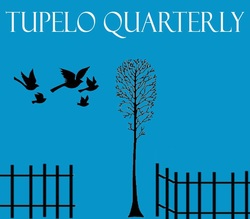 Okay, it's established: I'm not a blogger. Some people blog and then pull together a newsletter from their blog posts. I don't do that. I put together a newsletter. Maybe now I need to take info from the newsletter and put it on this so-called "blog." It's a thought. The more time that goes by between posting something here on this news page/blog, the less I feel like changing that, which would seem to imply that I spend time thinking about this, when in fact, I don't. In any case, here's something that needs sharing, and seems to insist on its own dedicated space. Yesterday, Tupelo Quarterly launched its first issue, and I'm proud to have my story "An Uncle" in it. The lit mag promises to be fabulous, with Jessamyn Smith as editor and Elizabeth Eslami as senior prose editor. This is TQ's foray into prose, and I'm thrilled to have been asked to contribute something. Happier still, to have Elizabeth Eslami's comments about my story, which appeared on the TQ Facebook page today. She's a fine writer and astute editor, and that makes her remarks all the dearer. Here's what she said: I love this story…Where “An Uncle” succeeds, for me, is voice, which is so hard to pull off and which she does so beautifully. And that’s where this story has to live or die, because…nothing much happens except the cracking open of a window into this girl’s life. She’s clearly at a transitional age, and Peg nails that shift, from a narrator who slaps Barbies against her sister’s arms to one who lets her mind go there, romanticizing that uncle who isn’t so much older than she is. Antonya Nelson writes about making the most of transitional ages, not only capitalizing on their “built-in” associations – first periods, dating, sex – but especially working against those associations, and damned if Peg doesn’t do that. There are a million ways she could have been predictable here, but she isn’t. What is real is a pre-teen who at once doubts she’ll be able to learn those dances but who also has the maturity and prescience to simply smile with the hope that Uncle Lew will see her, that something like a smile will shape how he sees her. …I truly think this is one of our best stories, one that I’m proud to publish in the first issue. "One of our best stories," she says. Thanks so much to Liz, Jessamyn, and TQ. I'm inordinately fond of this story, for reasons I don't care to analyze, and so happy that it's had some readers. The Next Big Thing continues. Kara Vernor was tagged by Michael David Lukas.
What is your working title of your book (or story)? She Could Maybe Lift a Car (a chapbook of short shorts) Where did the idea come from for the book? Each story sprang from a different idea, though several were sparked by memories of the TV shows I watched in the '80s. What genre does your book fall under? Literary flash fiction. Which actors would you choose to play your characters in a movie rendition? Many of the female characters are young and a mix of heroic and tragic. Jennifer Lawrence comes to mind because of her role in "Winter's Bone." For the men, someone pretty-ugly, like Joel Kinnaman from the show "The Killing." What is the one-sentence synopsis of your book? A flash fiction chapbook with stories about potential, restlessness, the influence of '80s television, sex, beer, feminism, blood, alienation and desperation. Will your book be self-published or represented by an agency? I hope it will be published by a small press. How long did it take you to write the first draft of your manuscript? Two years. What other books would you compare this story to within your genre? My stories are similar in style to many of the flash writers published by Rose Metal Press, the female writers in particular. Who or what inspired you to write this book? I was inspired by flash journals such as Quick Fiction, Wigleaf, Smokelong Quarterly, and Necessary Fiction, and as well by many flash writers: Stephanie Freele, Kathy Fish, Elizabeth Ellen and John Jodzio come to mind. Discovering writers and markets I appreciate and "get" made me think they might "get" me back. What else about your book might pique the reader's interest? Maybe some of the individual titles? Here are those of the '80s-themed stories: "Don Johnson Is Not Your Man"; "The True Love of Magnum P.I."; and"David Hasselhoff Is From Baltimore". Kara tags Dave Dulberg, who will post next about his novel, Makeshift. Check out Thaisa Frank's discussion of her novel in progress, currently entitled Light and Transient Causes. Great title -- find out from where it came, and from where her idea for it came. (Hint: "pneumatic tube of the imagination" is involved.) Thaisa also provides a great definition of literary fiction.
Ilana Simons' work-in-progress Ilana Simons is an amazing writer who I met through the publication of one of her beautiful short stories years back. She's also a psychotherapist, teacher, and painter. Oh, also a marathoner. She's the author of the wonderful A Life of One’s Own: A Guide to Better Living through the Work and Wisdom of Virginia Woolf (Penguin Press, August 2007). Currently she's working on a novel with the working title (today) of Is Clara Burns a Narcissist? I'm fascinated by the sounds of this work-in-progress and appreciate her generosity in sharing her process. Example: I’m a psychologist who doesn’t like being in therapy but trusts that my disciplined routine of fiction writing taps and organizes my unconscious. Check out her share. Extra bonus: photos and art. More of The Next Big Thing soon, with Thaisa Frank next! Rayme Waters is the author of The Angel’s Share. Today she discusses her novel, Quicksilver, which is a young adult novel this time, and concerns a family that moves from San Francisco to an upscale Bay Area suburb for better schools, but find out the town is cursed, they are in grave danger, and only the daughter of the family can undo the spell.
Ten Interview Questions for the Next Big Thing: What is your working title of your book? Quicksilver. Where did the idea come from for the book? The children’s library in the city where I live is a little gem: charming, hidden away and complete with a “secret garden” in the back. Passing it for maybe the hundredth time, out of nowhere came the question: What if the library was enchanted? Would the librarian also be enchanted? How about the children? What would it take to break that spell? Those were the initial questions that grew the idea for Quicksilver. In the novel, the entire town, built on top of abandoned mercury mines, is enchanted. The locus of the spell is the library and things both wonderful and evil flow from below it. What genre does your book fall under? Young Adult fiction, but I hope to create enough literary layers to interest readers of all ages. Which actors would you choose to play your characters in a movie rendition? Most fun question ever! Elizabeth Banks would make a fantastic Lillian Flint. Amy Adams as Julie Flint and Ryan Gosling as Mr. Phillips because I can picture the chemistry working between them. Julianna Margulies as Esperanza’s mother. Any number of young actors could play the 15 year-olds at the heart of the story, Esperanza Bennett and Arden Flint. What is the one-sentence synopsis of your book? A family moves from San Francisco to an upscale Bay Area suburb for the school district, but discovers the town is under a spell; the fifteen-year-old daughter of the family has the power to lift the curse, but will she make the tremendous personal sacrifice to do so? Will your book be self-published or represented by an agency? I am represented by an agent and hope to sell the novel to a traditional publisher. How long did it take you to write the first draft of your manuscript? I’ve been working on the book for about six years. My first novel was eight years so I’m hoping to finish this one a little faster. Maybe the next one will only take four years. What other books would you compare this story to within your genre? Karen Thompson Walker’s The Age of Miracles. When You Reach Me by Rebecca Stead. Who or what inspired you to write this book? My imagination triggered the process; but once I started getting ideas down on paper and doing research, the story took over. As I’m editing I find myself getting excited about what is going to happen next—as if I didn’t know. What else about your book might pique the reader's interest? Several of my trusted early readers think it has the feel of a break-through novel. Rayme has tagged Sabra Wineteer who will post Jan. 31 about her novel, The Measure of Memory, which tells the story of a Nashville chef on a quest for his identity which allows him to discover his humanity. Ten Interview Questions for Rob Yardumian:
What is your working title of your book (or story)? My novel is called The Sound of Songs Across the Water. It will be published in June, 2013. Where did the idea come from for the book? When I lived in Los Angeles, I used to run around Silver Lake in the mornings. It’s about three miles around the lake, which is actually a reservoir behind barbed-wire fencing. Anyway, the story for this book came to me on a run around the lake one morning. By the time I got home, I had the whole story, and it never changed very much, thought it did take nine years to finish. What genre does your book fall under? Literary fiction Which actors would you choose to play your characters in a movie rendition? This is actually an exercise I spend quite a bit of time on, as it helps me imagine characters. But Riley, the main character, has resisted all attempts to pin an actor on him. Weird. Lena would be played by Angela Bassett, back when she was 35. And Will Taylor would be played by a guy I knew the summer I spent weaving hammocks in Nags Head, NC. I don’t remember his name, but everyone called him Big Daddy. What is the one-sentence synopsis of your book? It’s about melody, lust, and the ghosts we can’t outrun. Will your book be self-published or represented by an agency? Neither. It will be published by MP Publishing, an indie press with offices in San Francisco and the UK. How long did it take you to write the first draft of your manuscript? 2.5 years Who or what inspired you to write this book? I wouldn’t say there was any particular inspiration for this book. I was looking to move beyond short stories into novels. I had two stories I liked for the novel, and after a lot of whiskey and consideration with my friend Michael Ritterbrown, I chose this one. It was the “easier” of the two to write, which seemed a good idea at the time. What else about your book might pique the reader's interest? There is an album of songs at the core of the book, and those songs exist in real life. I’ll be recording the album this spring with some friends here in Portland, and will have the record to market along with the novel come summer. Come see me read—I’ll play some songs, too! My next Next Big Thing participants: Sara Rivara. Sara will be writing about Lake Effect, a chapbook of poems that explore loss and rebirth amidst the harsh and stunning landscapes of Michigan. Lisa Croneberg. Info to come; stay tuned! Michael David Lukas is the author of the award-winning The Oracle of Stamboul.
What is your working title of your book (or story)? The Forty Third Name of God. Where did the idea come from for the book? I had the idea during a long conversation with an extremely talkative woman sitting next to me on a cross-country flight. She was talking about her experience immigrating to the United States in the 1970s and, even though she was neither Jewish nor Egyptian, something about her story made me want to write a novel about the Jews of Cairo. What genre does your book fall under? Literary fiction with a dash of the historical and a pinch of magic. Which actors would you choose to play your characters in a movie rendition? I’m thinking that, like in the adaptation of Cloud Atlas, Tom Hanks and Hale Berry will play most roles. The leftovers will go to Meryl Streep and Daniel Day Lewis. What is the one-sentence synopsis of your book? The Forty Third Name of God is a polyphonic, multi-generational novel about the Jews of Cairo, focusing particularly on three stories that revolve around a stash of documents hidden for nearly a thousand years in the attic of the Ibn Ezra Synagogue. Will your book be self-published or represented by an agency? An agency. How long did it take you to write the first draft of your manuscript? The first draft took about a year to write. When it was finished, I threw it out (digitally) and started over from scratch. I did the same thing for the second and third drafts. The fourth draft escaped the digital trash bin and was the basis for the fifth (and hopefully finalish) draft, which I should be finishing up in the next couple weeks. What other books would you compare this story to within your genre? The Forty Third Name of God was inspired/guided/encouraged by a number of novels, including but not limited to: Great House, A Visit From the Goon Squad, Gods Without Men, The Brief Wondrous Life of Oscar Wao, Cloud Atlas, Out of Egypt, Leaving Atocha Station, Possession, Palace Walk, and The English Patient. Who or what inspired you to write this book? See above. What else about your book might pique the reader's interest? There’s magic, forbidden love, ennui, and a pair of late Victorian lady bible hunters (based on the amazing Agnes Lewis and Margaret Gibson). Michael's tagged these two writers to post next week. Kara Vernor will post here about her upcoming flash chapbook, She Could Maybe Lift a Car. Major topics include: potential, restlessness, the influence of '80s television, blood, feminism, sex, beer, alienation, and desperation. How's that for a party? Former McSweeney's (and future Rumpus) columnist Dani Burlison will post at her website Jan 31. about the life of a columnist and her upcoming book Some Places Worth Leaving. 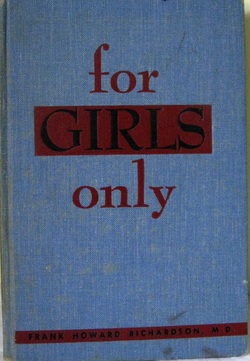 I’m pleased that Christine Hale asked me to participate in this project and primarily because I admire her writing so very much, I decided to give it a try. Her Basil’s Dream is a wonderful novel and from the sounds of her blog post her memoir In Your Line of Sight: A Reconciliation will also follow suit. You can read an excerpt of it at Spry. When I first read the phrase "The Next Big Thing," the words didn’t give me pause: the manuscript I’m working on is my big thing, for sure. It didn’t occur to me to think of the project as meaning the next big thing for the world. Only as I started asking my other writer pals if they wanted to play along did I realize that they got it: they were thinking of the phrase as if were they to take up the challenge they would be declaiming their work as the next big thing and were loathe to make that claim. They didn’t have the hubris. Interesting. There’s a level of seriousness involved there that I don’t quite share, I suppose. While I’m not one to talk out a work-in-progress and find I need to keep much of it to myself, to dwell in the mystery, and let the words go toward the creation of the work itself, I also think it’s possible and helpful to share certain ideas. In any case, it’s been fun to talk about my work-in-progress and with any luck it may be fun for whomever reads about it. And if Blow the House Down becomes the next big thing of the universe, well, hey! You got a little glimpse into its very early gestation. Without further reflection, here’s my “interview.” What is your working title of your book? Blow the House Down Where did the idea come from for the book? Exactly where the idea originated is hard to pinpoint. A set of characters – a pair of siblings – suggested themselves to me at some point over the past year and it became clear to me after a while I was writing a long piece about them. Around the same time I came across a book called For Girls Only: The Mysteries of Womanhood Explained, by a doctor Frank Howard Richardson published in the 1950s. The index listed such evocative topics as “Friendships, Abnormal,” “Narcissism,” “Mothers Try to Understand their Daughters,” and the book dispenses such wisdom as the necessity of girls cultivating popularity with boys, among other – suggestions is too mild a word – directions and admonitions, let’s call them. On the inside leaf, an aunt has written a letter to her niece about why she’s gifting the girl with this book, and that seemed to add another dimension to my imagining my protagonist Shelly (short for Michelle) as a girl. I’d also been reading The Chemistry Between Us: Loves, Sex, and the Science of Attraction (by Larry Young), which discusses epigenetics and lifelong effects of lack of mothering and oxytocin on children. In the manuscript the parents of Shelly and her older brother Tommy are most notable for their absence in the sibs’ early days. I liked the idea of exploring an intense bonding between a brother and sister, in which they’re really in their own universe separate from adults, and how that informs them throughout their lives. What genre does your book fall under? Contemporary lit fiction. It’s a novel-told-in-stories, and the stories are very very brief: flash. Which actors would you choose to play your characters in a movie rendition? Tommy: handsome, intense actors such as Johnny Depp, Ryan Gosling, or possibly James Franco (I’m a little off the last since reading his recent chapbook Strongest of the Litter, no matter that the title would seem to imply a good fit between the poems and my evolving manuscript; however, I’m hoping his upcoming Graywolf book of poems will make up for my current disappointment). Shelly is harder to cast. I’m not sure why or what that says other than I don’t watch enough movies maybe. What is the one-sentence synopsis of your book? Too early to say. Will your book be self-published or represented by an agency? Represented. An excerpt has just been published by one of my favorites, Joyland Magazine. Read it here. How long did it take you to write the first draft of your manuscript? The first draft continues to evolve and is far from finished. What other books would you compare this story to within your genre? Dare I? Some of its trusted readers suggest Mary Robison’s Why Did I Ever and Justin Torres’ We the Animals. I like those comparisons a lot. In terms of structure, I think other good comparisons are Nick Flynn’s Another Bullshit Night in Suck City and The Ticking of the Bomb, though those books are of course memoir. Also, perhaps, Thaddeus Rutkowski’s Haywire and other novels. Who or what inspired you to write this book? See above answer to where did the idea come from. I have a passion for writing flash fiction; I love the form. I’m fascinated by how miniature stories can have the explosive or resounding or far-reaching effects that they do, and particularly interested in when they are structured to form a larger manuscript how they accumulate both in what they say and, much more so, in what they don’t say. What else about your book might pique the reader's interest? There are no vampires. Well, I think that’s a plus. Seriously, one thing the flash form does better than other forms or genres is to more nearly approximate life, in that it’s made up of moments lived one at a time. What Shelly does is what we all do, live moment by moment and decode, over time, the individual moments and what they become. It’s an emotionally, maybe even brutally, honest exploration of siblings. And it’s funny sometimes. If you like your humor with a little edge to it. That’s what I think today. As the manuscript nears completion I may have different thoughts, hopefully more complex and erudite thoughts. Though I doubt they will involve vampires. Check out the next five writers I’ve asked to participate in The Next Big Thing. On January 22 Michael David Lukas, author of the award-winning The Oracle of Stamboul, will post here about his forthcoming The Forty Third Name of God, which tells the story of an Egyptian Muslim family charged with guarding the Ibn Ezra Synagogue in Cairo and its famous Geniza (a treasure trove of medieval Jewish manuscripts found in the nineteenth century by Solomon Schechter). A multigenerational chronicle of the al-Raqib family, this is a novel about Muslim-Jewish relations in Cairo, the hidden secrets of the Kaballah, and the sometimes conflicting ties of family and religion. On January 24 Rob Yardumian will post here about his novel The Sound of Songs Across the Water, coming out in June, which traces creation and betrayal, joining and fissure at a time when lovers still made mixtapes to show they cared. Rob is a wonderful musician as well as writer so there’s no doubt this book will rock. (Nobody says “rock” anymore but the novel is set in 1995, okay? And he totally does.) On January 26 Rayme Waters, author of the wonderful The Angel’s Share (Do you know what the angel’s share is? This novel has one of the best titles ever), will post here about next novel, Quicksilver, which is a young adult novel this time, and concerns a family that moves from San Francisco to an upscale Bay Area suburb for better schools, but find out the town is cursed, they are in grave danger, and only the daughter of the family can undo the spell. On January 25 the sublime Ilana Simons, author of A Life of One's Own: A Guide to Better Living through the Work and Wisdom of Virginia Woolf, painter, and short story writer extraordinaire, will post at her blog about her work-in-progress that she’s titled “Little Narcissistic Clara Burns” and “Who in the World is Clara Burns?” and will title something else yet. The range of those two titles – moving from one to the other – already has me fascinated. On January 29 when Thaisa Frank, author of the award-winning Heidegger’s Glasses, takes a break from her travels she’ll post on her blog about her current work-inprogress of which the title is secret. What you are permitted to know at this moment is that the novel is set in a house that is under surveillance in an undisclosed country that is having a civil war and explores how the conundrum of personal identity is brought into bold relief by war. Please be sure to read what these wonderful writers will so generously share with you about their works-in-progress. I know you won’t be disappointed.  Tristan Tzara knew something about the creative power of community and constraint. During a Dadaist rally in the 1920s, Tzara offered to create a work on the spot by pulling words at random from a hat. We applied this technique to writing flash fiction, pulling the five words that each of us contributed from a hat at timed intervals and thereupon their selection immediately incorporating them into the stories as we drafted them. Come hear the results! Tzara’s Hat: Five Writers, Five New Works at the legendary Litcrawl. Phase One: 6 - 7:00 pm, Oct 13, 2012. Four Barrel Coffee. 375 Valencia St. SF. 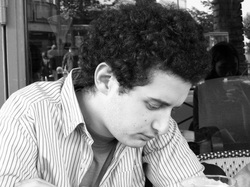 Daniel Levin Becker Daniel Levin Becker is the youngest member of the Paris-based Oulipo collective. His essays, reviews, fiction, and translations have appeared in The Point, Monolith, The Believer, American Book Review, Formes Poétiques Contemporaines, The Wall Street Journal, The Quarterly Conversation, Drunken Boat, Berfrois, and others, and anthologized in Avery, Sudden Flash Youth, and the forthcoming second volume of The &Now Awards. His first book, Many Subtle Channels: In Praise of Potential Literature, was published in April 2012 by Harvard University Press. Kirkus called it "more palatable than expected." 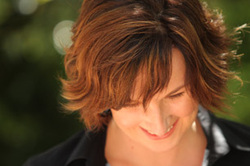 Ethel Rohan Ethel Rohan is the author of the story collections Goodnight Nobody (forthcoming 2013) and Cut Through the Bone, the latter longlisted for The Story Prize. She is also the author of the chapbook, Hard to Say. Her work has or will appear in World Literature Today, Tin House Online, The Irish Times, The Rumpus, Post Road Magazine, and The Los Angeles Review, among many others. She earned her MFA in fiction from Mills College, CA. Raised in Ireland, Ethel Rohan now lives in San Francisco where she is a member of the Writers Grotto. 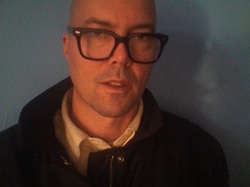 Janey Smith Janey Smith is the writer of Animals (2011, Plain Wrap) and The Snow Poems (2012, NAP). She is fiction editor at Metazen. If you want to hang out, 415.202.4378. 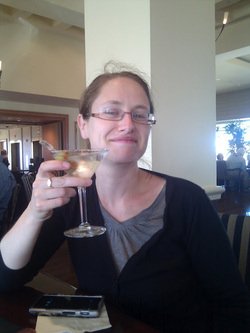 Olga Zilberbourg Olga Zilberbourg was born in St. Petersburg, Russia and moved to the United States at the age of seventeen. Her first two books of fiction were published in St. Petersburg, where her parents still reside. "Where Does the Sea Flow," a short film based on one of Olga’s stories, was recently selected as a finalist in the Manhattan Short Film Festival. Olga’s English-language writing has appeared in Narrative Magazine, Santa Monica Review, J Journal, Mad Hatters’ Review, Prick of the Spindle, HTMLGiant, and other print and online publications. Olga is a senior associate editor at Narrative Magazine.  Peg Alford Pursell Peg Alford Pursell. Me. Who you already know all about, or can by going to the home page (click on my name). Prick of the Spindle's latest issue is available, for which I've also contributed a book review. Matt Bell's Cataclysm Baby. Give it a read and let me know what you think!
|
Occasional TidbitsVery occasional! Archives
March 2020
Categories
All
|
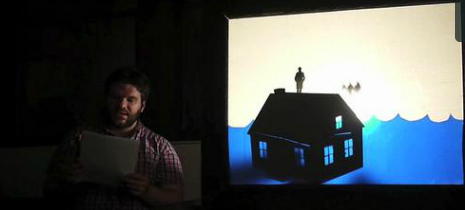
 RSS Feed
RSS Feed
